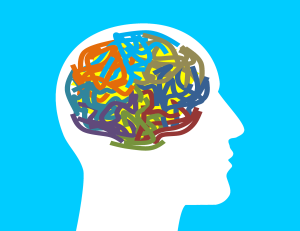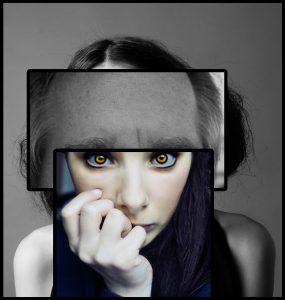What is a Personality Disorder?
We are identified and described by ourselves and others in terms of personality, but what is personality and what does it mean to be diagnosed with a personality disorder?

What is Personality?
Personality is defined by multiple characteristics, beliefs, behaviors, attitudes, and thoughts we have that are shaped by genetics, experiences, culture, and environment. Personality affects how we interact with others and with the world itself. In most cases, one’s personality remains largely unchanged over time.
What is a Personality Disorder?
A personality disorder is a mental health condition consisting of a disruption in a person’s thoughts, behaviors, moods, and relationships that causes the individual to deviate from established norms and leads to significant and long-lasting problems in functioning.
Personality disorders can affect the perception of reality, way of thinking, emotional responses, relating to others, and how the individual controls behaviors. It can be difficult for a person to recognize they have these problems or see how these behaviors affect others.
What are the 10 Types of Personality Disorders?
There are 10 types of personality disorders recognized by the Diagnostic and Statistical Manual of Mental Disorders (DSM-5) that are organized into three clusters based on common symptoms.

Cluster A
Cluster A personality disorders consist of thinking and behavior that appears unusual to others and include:
- Paranoid personality disorder: suspicious of others without reason to an extent these people believe others intend to harm them.
- Schizoid personality disorder: detachment from and disinterest in others with limited emotions and a preference for solitude.
- Schizotypal personality disorder: discomfort with close relationships and may have distorted perceptions, odd beliefs, and abnormal behaviors and superstitions.
Cluster B
Cluster B personality disorders involve dramatic, unstable emotions and impulsive behaviors and include:
- Antisocial personality disorder: displays a lack of respect for others, refuses to conform to social norms and may lie, deceive, or otherwise physically or emotionally harm others.
- Borderline personality disorder: intense emotions and mood swings, low self-esteem, impulsivity, and difficulty and instability in relationships.
- Histrionic personality disorder: dramatic and inappropriate attention-seeking behavior with self-esteem depending upon the attention of others.
- Narcissistic personality disorder: lack of empathy, need for praise coupled with feelings of superiority and entitlement, often stemming from low self-esteem.
Cluster C
Cluster C personality disorders consist of chronic fear and anxiety. These disorders include:
- Avoidant personality disorder: shy and extremely sensitive, avoids social interaction due to a fear of being rejected, though they desire social interaction.
- Dependent personality disorder: pattern of needing care from someone else, inability to make decisions, fear of separation, and passive, clingy behavior.
- Obsessive-compulsive personality disorder: (not the same as obsessive-compulsive disorder) consistent need for order, perfection, and control with little awareness of behaviors interfering with relationships or work.
What Does it all Mean?
Personality is how we define ourselves, so getting diagnosed with a personality disorder can be upsetting and feel almost like an attack. However, an estimated nine percent of adults in the U.S. have at least one personality disorder. It is possible to have more than one.
Personality disorders must be diagnosed by a mental health professional evaluating patterns long-term. Borderline and antisocial personality disorders are the most commonly diagnosed.
What Causes Personality Disorders?
Scientists do not yet know a definitive cause of personality disorders but have identified factors they believe may contribute to the development of these disorders:
- Genetics
- Brain changes
- Trauma
- Abuse
- Cultural factors
How to Cope
Therapy can help individuals with personality disorders identify, understand, and manage the troubling emotions and behaviors that coincide with these disorders. Personality disorders are mental health conditions that are more easy to manage with proper treatment. If you or someone you know experiences some of the symptoms or behaviors outlined here, seeking the help of a mental health professional can prevent the stress, depression, grief, and isolation these disorders can cause. If you would like to see an experienced therapist at Jacksonville Center for Counseling, please contact us!